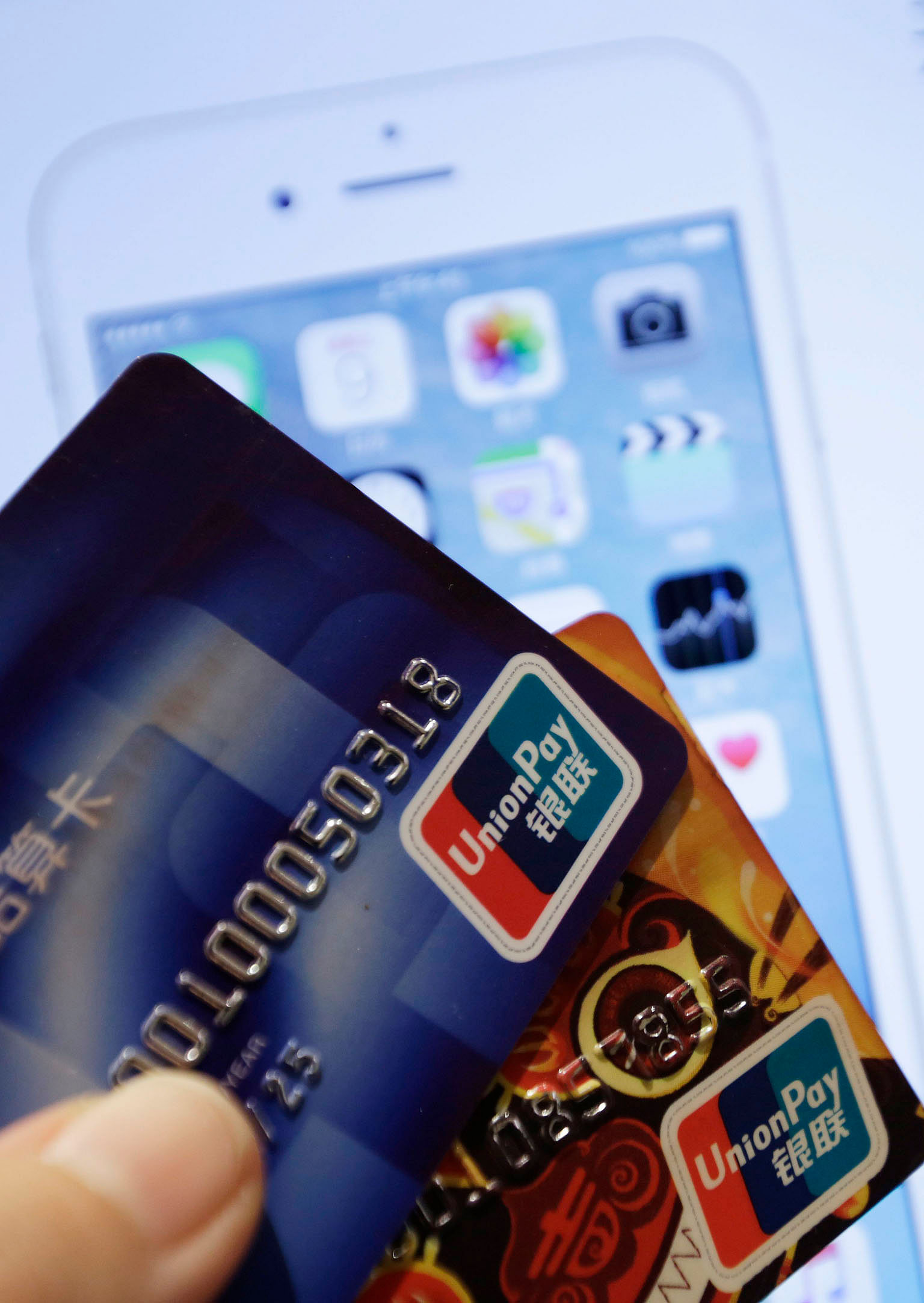SAN FRANCISCO • Apple and Samsung Electronics have reached separate agreements with China UnionPay to introduce their competing mobile payment systems in the country next year.
Customers of UnionPay, China's largest payment and clearing network, will be able to add their bank cards to iPhones, iPads and the Apple Watch for purchases through Apple Pay, the companies said in a statement. Users of Samsung Galaxy and Note devices will have similar options. While the deals allow the two biggest smartphone makers to take their nascent payment systems to the world's largest market with the backing of state- backed UnionPay, they will face entrenched competition.
Alibaba Group Holding's Alipay and Tencent Holdings' Tenpay have already built large customer bases for payments on their e-commerce and other business platforms.
"Alipay remains the industry's dominant player, which Apple Pay would find difficult to surpass in the near future," Forrester Research analyst Di Jin said in an e-mail. "The partnership between Apple and
UnionPay is a strategy of compromise that is unlikely to help Apple gain more users from their competition, despite UnionPay's existing mobile payment alliances with banks and Internet companies."

Still, for foreign companies such as Apple and Samsung, China offers an opportunity to profit from a market where mobile payment transactions jumped 134 per cent to 22.6 trillion yuan (S$4.9 trillion) last year, central bank data shows.
Apple and Samsung use different technology for their services. Apple Pay utilises near-field communication (NFC), which enables users to pay for purchases by tapping their phone or watch with stored bank card information on a device at cash registers.
UnionPay has more than five million point-of-sale machines in China that are NFC-enabled. While Samsung's service also uses NFC, it offers traditional magnetic stripe-reading technology too.
Apple Pay charges 0.15 per cent of the value of each purchase made through its system, out of the 2 per cent fee paid by merchants in the United States, Caixin magazine reported in February. Such a rate would be too expensive in China, given that the total fee paid by some merchants is only 0.38 per cent.
Alibaba's Alipay affiliate controlled 83 per cent of China's third-party mobile payment market last year, while Tenpay held 10 per cent, according to market research firm iResearch. Alipay allows its more than 400 million real-name registered users to make purchases from desktop computers, tablets and smartphones at more than 130,000 brick-and-mortar merchants, according to its website.
The mobile payment tool will be available for UnionPay cardholders as early as next year after tests and certification required by Chinese regulators, the companies said.
"China is an extremely important market for Apple, and with China UnionPay and support from 15 of China's leading banks, users will soon have a convenient, private and secure payment experience," Mr Eddy Cue, senior vice-president of Internet Software and Services, said in the statement.
Established in 2002 in Shanghai by the State Council and the central bank with shareholders including major Chinese banks, UnionPay has more than 4.6 billion bank cards in circulation, with a network across more than 150 countries, according to its website.
"Banks hope to use the UnionPay platform to get involved in the sector of mobile payment," said Mr Chen Xingyu, a Shanghai-based analyst at Phillip Securities Research. "By cooperating with Apple and Samsung, UnionPay can reach middle- or high-end clients."
BLOOMBERG
